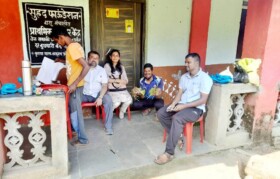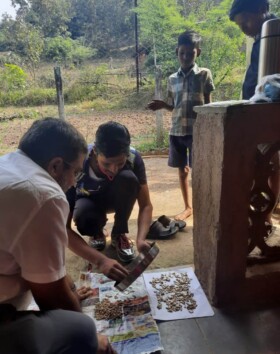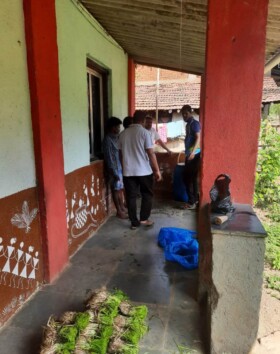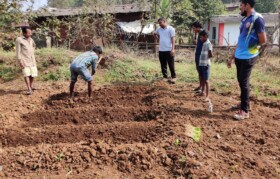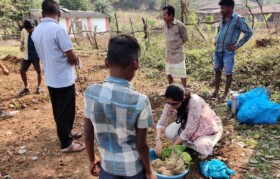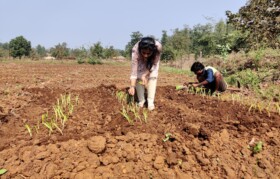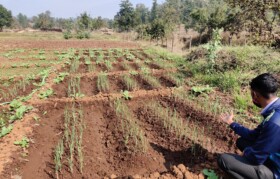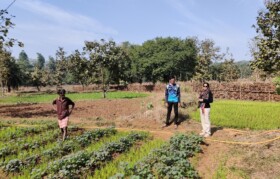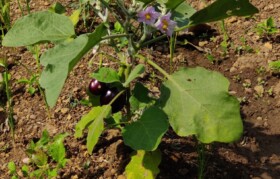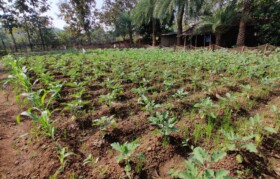Farming Support – Experiments with second crop

This post has already been read 1632 times!
Tribal farmers typically (almost over 80-85% of the farmers) do not take second crop after their monsoon crop of rice. Rice is essentially their security crop i.e. it gives them a comfort that they would have something to eat next year. Hence rice crop, even though it is not necessarily always commercially viable crop, tribal farmers do take it invariably. Option of replacing rice crop with some other cash crop is almost not an option. Hence, we are focusing more in talking to farmers and convincing them to work on second or third crop – which would in-turn ensure that land is used properly and they do not have to migrate out of the region as brick-kiln worker, construction worker or fishing worker.
One of the teachers from our ten schools have been working on this theme in his village for last 3-4 years. We requested him to repeat the same in this village as well i.e. in Kaspada. In the month of October 2021, This resulted into we discussing the second and third crop options with farmers of Kaspada. The problems which surfaced in discussion, were many. Two of the major ones being availability of water and selling avenues for the produce. Finally, it came down to doing it on a trial basis with 4-5 farmers where there is possible availability of water from nearby sources. In a meeting, 4 farmers came forward to accept our support (financial and also guidance point of view) while ensuring enough effort from their side on taking second crop – various vegetables. This was agreed to be done organic way – without using any harmful chemical fertilizers.
We decided for onion, sunflower, multiple veggies (brinjal/egg-plant, bhindi/lady-finger, bottle-gird, spinach, etc). We purchased onion saplings and seeds required for this purpose. We also purchased material required for making organic fertilizers/nutrition (known as Jivamrut). Farmers were explained entire life-cycle of the crop. Once a week and later on once in 15-days visits were done to review and guide farmers. The results were very encouraging. Farmers had vegetables for themselves and their neighbors. We also purchased few things from them.
Farmers have agreed to do serious attempt by doing cash-crop (primarily vegetables) along with rice – so that enough rice for family is made and remaining space (if any) is used in improving livelihood further. We would reconnect with farmers in second week of May 2022 for further planning.

